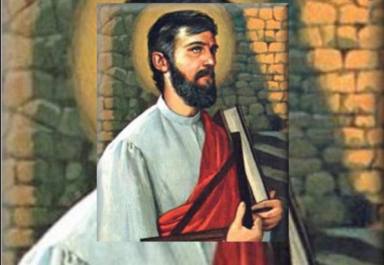توما
متن انجیل توماس اینها سخنان سری ای است که عیسای زنده گفت و یهودا توماس همزاد نوشت .
و او گفت: «آن کس که به معنای این سخنان پی ببرد مرگ را نمی چشد.» (2) عیسی گفت : «بگذار آن کس که می جوید همچنان بجوید تا بیابد. چون می یابد، به زحمت می افتد. چون به زحمت می افتد، حیران می شود و بر همه فرمان می راند.» (3) عیسی گفت: «اگر آنان که پیشوایی تان می کنند به شما بگویند بنگرید، ملکوت در آسمان است، در این صورت، پرندگان آسمان بر شما پیشی جسته اند. اگر ایشان به شما بگویند آن در دریاست، در این صورت، ماهیان از شما پیشی جسته اند. بلکه، ملکوت در درون شماست. و بیرون شماست. چون بخواهید خودتان را بشناسید، شناخته می شوید، و در می یابید که شمایید پسران پدر زنده. اما اگر خود را نشناسید، در مسکنت به سر می برید و شمایید آن مسکنت.» (4) عیسی گفت: «مردی که پیر ایام است بی تعلل از کودک کوچک هفت روزه از زندگی می پرسد، و زندگی می کند. زیرا بسیاری از پیشینیان پسینیان می شوند، و یکی و همسان می شوند.» (5) عیسی گفت: «آنچه را در منظر شماست باز شناسید، و آنچه از شما پنهان است برایتان آشکار می شود. زیرا هیچ نهانی نیست که جلوه گر نشود




